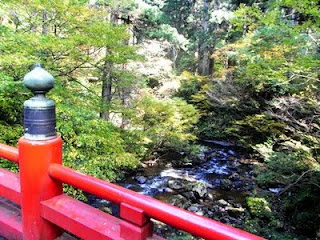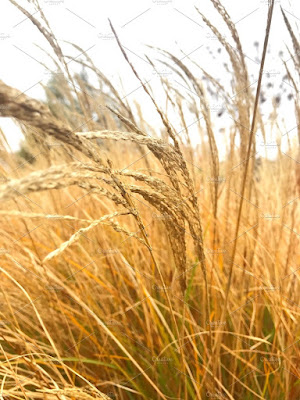Dear Haijin, visitors and travelers,
Welcome at a "new" episode of our wonderful Haiku Kai. This month we celebrate our 9th anniversary with a "trip along memory-lane". In our rich history we have seen a lot of different places on our planet. Today I have chosen to "reprise" one of the episodes about the Trans Siberian Railroad, that we followed back in January 2014 on our way to our pilgrimage on Shikoku Island. That month our CDHK logo was the following:
 |
| Our Carpe Diem Haiku Kai Logo for January 2014, a picture of the TSR along Lake Baikal |
I remember that it was a wonderful trip and today I love to let you all experience that again.
+++++++
Today we are going further on our memory lane along the nine years of Carpe Diem Haiku Kai. We have arrived in January 2014. In that month we started with our pilgrimage to the Isle of Shikoku to visit all 88 temples there. To get there we took the Trans Siberian Railroad (TSR) straight through the former USSR in January 2014. While we were on our way to Vladivostok, the end station of the TSR, we read "Aleph" a novel written by Paulo Coelho in which he describes his search for his former lives. "Aleph" is situated on the TSR and so we went on reading "Aleph" following the story-line and traveling straight through the former USSR.
I remember that it was a wonderful month and that I have read wonderful haiku, tanka and haibun. In that month Alexey Andreyev (a Russian haiku poet who lives in the USA) was our featured haiku poet. I love to share the last CD-Special haiku of January 2014, here again.
morning awakenings:
among window curtains' flowers
a blade of gray sky
© Alexey Andreyev
As I told you above, the TSR drives straight through the former USSR from Moscow to Vladivostok. So this reprise-episode is about the end station of the TSR Vladivostok. Vladivostok was closed for foreigners until the end of the "Cold War" and in 2012, after a major International Event, it became one of the bigger cities of Russia.
 |
| Aleph by Paulo Coelho (book cover) |
I ended that episode, back in January 2014, with the following quote from Paulo Coelho's "Aleph":
[...] As they arrive almost in Vladivostok, Paulo decides to make a walk through the Trans Siberian Express, which he sees as a city. He walks through that city,which stretched out like an ever-flowing river of steel, a city were he doesn't speak the local language. He heard all kinds of languages and sounds and notices that, as happens in all large cities, most people weren't talking to anyone, each passenger absorbed in his or her own problems and dreams, forced to share the smae compartment with three strangers, people they never will meet again. The Trans Siberian Express, is really a city ... and as in a normal city we live together with our neighbors, but ... do you know your neighbors really? [...]
After his walk through the train he writes a note, which I love to share here with you.
[...]I am not a foreigner because I haven't been praying to return safely home, I haven't wasted my time imagining my house, my desk, my side of the bed, I am not a foreigner because we are all travelling, we are all full of the same questions, the same tiredness, the same fears, the same selfishness and the same generosity. I am not a foreigner because, when I asked, I received. When I knocked, the door opened. When I looked, I found. [...] (Source:'Aleph' by Paulo Coelho)
 |
| Let Your Dream Come True |
And I wrote to conclude that episode:
With this quote by Paulo Coelho I will conclude our Trans Siberian Railroad journey. Dreams you have ... you have to fullfill, they are not negotiable. So ... go for your dream and let that dream come true.
another day ends
reaching for the stars and the moon
into the dreamworld
© Chèvrefeuille
+++++++
With this haiku I conclude this episode in our "trip along memory-lane" with giving you the task to create a "crossroads" haiku.
(Explanation Crossroads haiku):
Haiku is still my first love, but during the years of our existence I learned to love and appreciate all kinds of Japanese poetry. And there we find the goal of this new feature "crossroads". In this new feature I love to challenge you to create a new haiku (ONLY haiku) inspired on two or more poems. That can be two haiku or one haiku and one tanka. Or one haiku and e.g. a sedoka. You have to create your new haiku (Only haiku) from the given poems. Sometimes I will give you a "normal" poem and a haiku (or tanka) to use for your inspiration to create haiku (ONLY haiku).
Imagine you are on a crossroad were two haiku come together. The haiku "have a conversation" and "decide" to become one. Together they create a symbiosis of a new haiku.
It will not be an easy task, but I think it will be fun.
Here are the two haiku, from this episode, you have to use. Create a "fuse" of both, you can use the words from the both haiku, but if you are inspired to create a new haiku with new words ... feel free:
morning awakenings:
among window curtains' flowers
a blade of gray sky
another day ends
reaching for the stars and the moon
into the dreamworld
Good luck my dear Haijin. This episode is NOW OPEN for your submissions and will remain open until October 30th at 10:00 PM (CEST). You can add your submission to the linking widget hidden in our logo below.













































